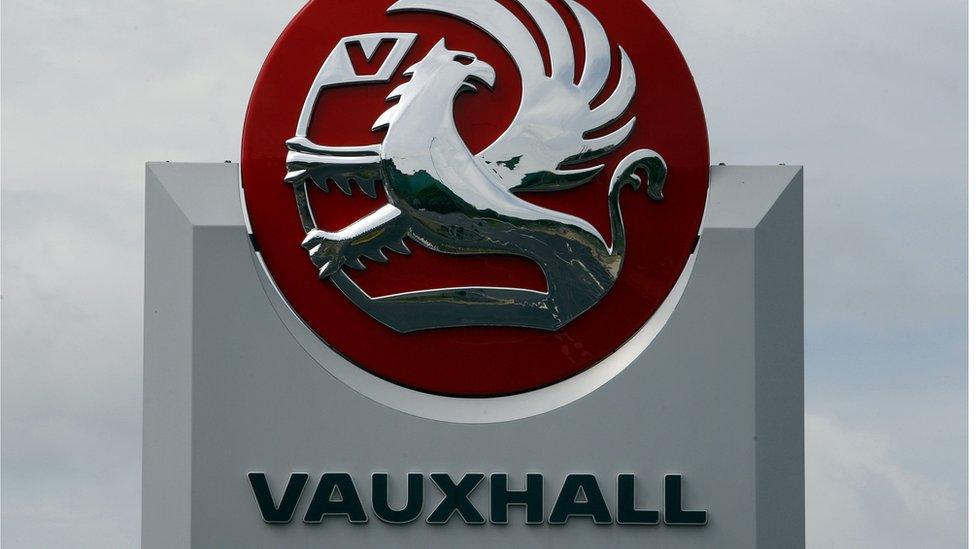Peugeot boss fails to commit to Vauxhall
- Published
- comments

A draft agreement to sell General Motors' European business to PSA, the owner of Peugeot and Citroen, could be signed as early as next week.
The │╔╚╦┐ь╩╓ understands that both companies are keen to sign a so-called "statement of intent" before the week Geneva Motor show starts on 6 March to prevent ongoing speculation overshadowing the release of new models.
Events that will determine the future of Vauxhall in the UK have been moving very quickly.
Since last week's surprise announcement that GM was considering a sale, senior management from both companies have met with politicians and unions in Germany and the UK. They fear that PSA, partially owned by the French government, may cut jobs outside France.
In a call with Prime Minister Theresa May last night, the PSA boss "expressed willingness to develop the iconic Vauxhall brand for its faithful customers". That's not quite the same as guaranteeing the future of 4,500 Vauxhall workers at Luton, Ellesmere Port and throughout the UK.
An outline deal will signal the start months of intense lobbying across Europe. Progress after any deal is signed will be slower.
PSA chief executive Carlos Tavares
It doesn't make much financial sense to stop production of a car before a new model is introduced and the Astra produced at Ellesmere Port is not due for an update till 2020. At that point, Ellesmere Port is considered particularly vulnerable to competition from a PSA plant in Sochaux in France.
The cost and complexity of moving car production at any point is formidable. Supply chains, logistics and IT platforms would require years of modifying.
For example, I'm told that at the Jaguar Land Rover plants in the UK, computers still briefly show a Ford prompt when users log in - and Ford sold JLR to Tata a decade ago.
Nevertheless, one thing all industry experts appear to agree on is that the 24 plants in Europe that a combined company would have is too many.
With only two factories of those 24 - and those plants soon to be outside the EU - the UK is considered the lightweight in this manufacturing tug-of-war.
The government here has stressed its support for the automotive sector with particular emphasis on new electric vehicles and battery technology - something considered key in convincing Nissan to promise increased investment in the UK.